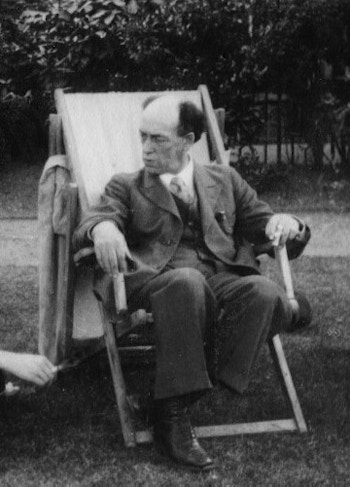
Poet, fiction writer, and essayist James Stephens was born to a working-class family in Dublin. When he was two years old, his father died, and his mother remarried four years later. Stephens was then sent to the Meath Protestant Industrial School for Boys in Blackrock, where he stayed for nearly a decade. He worked as a typist-clerk for a Dublin solicitor, barely eking by, and was soon drawn to the Irish Republican cause. A close friend of Easter Rising leader Thomas MacDonagh, Stephens published early writing in in the magazine Sinn Féin and was discovered by Irish Renaissance figure Æ.
Stephens wrote prolifically, publishing novels, essays, short stories, poerty, and retellings of Irish folktales. His breakthrough novel, The Crock of Gold, won him the financial freedom to move with his wife and son to Paris, from where he would eventually decamp to England. Skilled at balancing comedic delivery with a strong lyrical voice, Stephens considered William Blake a major influence. He befriended James Joyce, who considered him as a possible second writer for Finnegans Wake if Joyce himself couldn’t finish it. Stephens, who recorded more than seventy talks for the BBC during the last decade of his life, died in 1950. His accolades include the Irish Tailteann gold medal for service to literature and an honorary DLitt from Trinity College, Dublin.